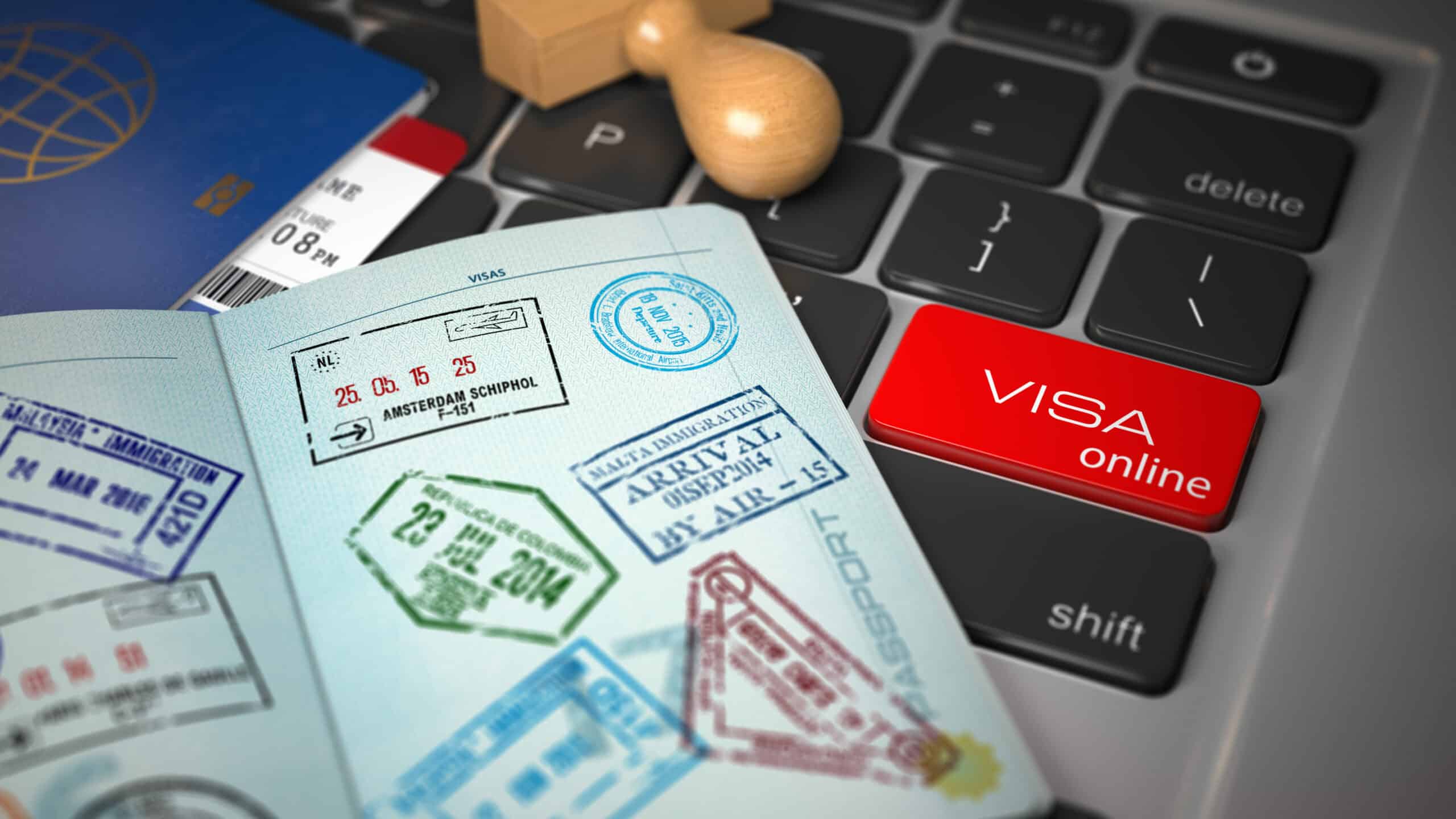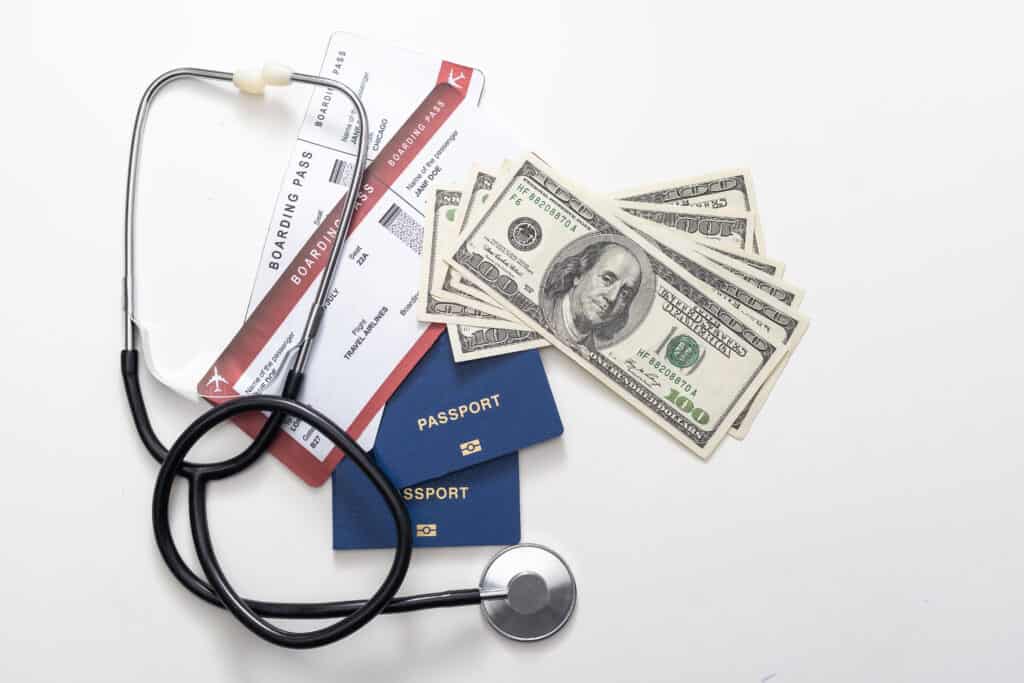Medical tourism has emerged as a popular option for individuals seeking high-quality medical care at affordable prices. As a spiritual seeker or someone looking to improve their well-being, you may consider this alternative healthcare approach.
This guide will explore the essential aspects of becoming a well-informed medical tourist. You will learn how to identify top destinations for medical procedures and compare treatment costs in foreign countries. We will also delve into researching the quality of care provided by different facilities and understanding the legal requirements associated with obtaining treatment abroad.
Finally, we’ll explore the accommodation options available during your stay to ensure a pleasant and rewarding medical tourism experience.
Compare Treatment Costs

When considering medical tourism, comparing treatment costs between different destinations is essential to ensure you’re getting the best value for your money. This process involves researching and comparing prices for various procedures, medications, and accommodations in each location.
Research Procedure Prices
To begin with, gather information on the cost of your desired procedure in multiple medical tourism destinations. Many hospitals and clinics offer price estimates online, making it easy to access this data without leaving home. Be aware that these estimates may not include all associated costs, such as medication or exchange rate fluctuations.
Factor In Medication Costs
In addition to procedure prices, consider the cost of any necessary medications or post-operative care supplies while abroad. Some countries may have lower drug prices than others due to differences in regulations or market competition – a factor worth investigating when choosing a destination.
Accommodation And Travel Expenses
Your overall budget should also account for accommodation and travel expenses during your stay at the chosen destination. Look into hotel options near medical facilities (Booking.com is an excellent resource) and research transportation methods available within each city (such as public transit systems).
Tips:
- Use websites like Numbeo Cost of Living Indexes to get an idea about living expenses at different locations around the world.
- Consider using a medical tourism agency to help you compare costs and plan your trip. These agencies often have partnerships with hospitals, clinics, and hotels that can result in discounted rates for their clients.
- Keep an eye on exchange rates when comparing prices between countries. Fluctuations in currency values can impact the overall cost of treatment abroad.
D. Additional Expenses To Consider
Beyond procedure, medication, accommodation, and travel expenses, there are other factors to consider when calculating the total cost of medical tourism:
- Insurance Coverage: Research whether your current health insurance policy covers treatments received overseas or if additional coverage is necessary.
- Visa Fees: Depending on the destination country’s requirements, visa fees may be applicable for medical tourists – another expense to factor into your budget.
- Potential Complications And Follow-Up Care: If complications arise during or after treatment abroad, ensure you’re financially prepared for any additional care required at the destination or back home.
Medical tourism can be a cost-effective option for those seeking medical care. By comparing treatment costs, factoring in additional expenses, and researching potential destinations, medical tourists can make informed decisions about their healthcare while enjoying the benefits of traveling to foreign countries. However, it’s important to keep in mind the potential risks and limitations of treatment abroad, especially in comparison to a universal healthcare system or public health options available in your home country.
Comparing treatment costs is a key factor to consider when researching medical tourism options. Moving on, it’s important to research the quality of care available at each destination before making any decisions.
Research Quality of Care

This involves evaluating factors such as accreditation, success rates, and patient testimonials.
Evaluating Accreditation
The first step in assessing the quality of care is to look for accreditation. Accredited facilities have met international standards for safety and quality in healthcare services. One well-known accrediting body is Joint Commission International (JCI), which evaluates hospitals worldwide based on their adherence to rigorous standards. When choosing a medical tourism destination, look for JCI-accredited hospitals or those accredited by other reputable organizations.
Comparing Success Rates
Another important factor in determining the quality of care at a particular facility is its success rate with specific procedures or treatments. For example, if you’re seeking dental implants abroad, compare success rates between clinics offering this service in various countries. Keep in mind that higher success rates often indicate better expertise and more advanced technology being used during treatment.
Tips for Comparing Success Rates:
- Gather data from multiple sources like hospital websites, online forums, and third-party reviews.
- Contact clinics directly to inquire about their statistics if they aren’t readily available online.
- Avoid relying solely on one source; cross-reference information whenever possible.
Patient Testimonials and Reviews
Patients’ accounts can furnish advantageous knowledge about the all-encompassing experience at a particular medical clinic or hospital, in addition to giving an idea about the standard of care received during treatment. Reading through reviews from previous patients will help you understand what to expect from the facility, staff, and overall experience. Keep in mind that it’s essential to consider both positive and negative reviews for a balanced perspective.
Where to Find Patient Testimonials:
- Hospital or clinic websites often feature patient testimonials on their pages.
- Online forums dedicated to medical tourism can be a great source of unbiased reviews from fellow travelers who have undergone similar treatments abroad.
- Social media platforms like Facebook or Instagram may provide insight into patients’ experiences through comments and direct messages with previous clients.
Aside from researching credentials, results, and feedback, don’t hesitate to directly ask medical providers any queries you may have. Open communication is key when choosing the right destination for your medical treatment abroad. By taking these steps, you’ll be well on your way toward finding the best possible care while enjoying all that medical tourism has to offer.
Investigating the standard of medical attention provided by healthcare tourism is essential to guarantee you get the highest quality care. Before embarking on medical tourism, familiarizing oneself with applicable laws is critical for safeguarding one’s rights and safety.
Understand Legal Requirements

Before beginning a medical tourism journey, it’s essential to be aware of the legal requirements for each destination, such as visa and insurance coverage regulations. This includes visa requirements, insurance coverage, and any other regulations that may apply to medical tourists.
Visa Requirements for Medical Tourism
Different countries have varying visa requirements, depending on your nationality and the purpose of your visit. For instance, some countries offer specific visas for medical tourists or require a letter from the treating hospital as part of the application process. It’s essential to research visa requirements well in advance and ensure you have all the necessary documentation before traveling.
- Thailand: Medical tourists can apply for a 60-day tourist visa with an option to extend up to one year if they meet certain criteria.
- Mexico: Citizens from most countries can enter Mexico without a visa for short-term visits (up to 180 days) but must obtain a temporary resident card if staying longer than six months.
- Turkey: Most nationalities are eligible for e-visas which allow stays up to three months; however, patients undergoing long-term treatment should apply for a special health tourism visa at their local Turkish consulate.
Insurance Coverage
In addition to understanding travel-related legalities like visas, it’s also vital that you know how your existing health insurance policy will cover treatments abroad or whether additional coverage is needed through specialized medical tourism insurance. This can help protect you from unexpected costs and ensure your medical expenses are covered throughout your journey.
When researching insurance options, consider the following:
- Check with your current health insurance provider to see if they cover treatments abroad or offer international coverage plans.
- If additional coverage is needed, compare different medical tourism insurance policies and their benefits, such as direct billing arrangements with hospitals or emergency evacuation services.
- Ensure the policy covers any pre-existing conditions or specific procedures you plan to undergo during your trip.
Other Regulations and Considerations
Beyond visas and insurance, there may be other legal requirements or considerations for medical tourists. For example:
- Data Privacy: Familiarize yourself with local data privacy laws in the destination country to understand how your personal information will be protected during treatment. The European Union’s General Data Protection Regulation (GDPR) is a prime example of strict data protection regulations that apply within its member countries.
- Mandatory Waiting Periods: Some countries require mandatory waiting periods before certain procedures can take place; this could impact scheduling flexibility for time-sensitive treatments like fertility services or organ transplants.
Understanding legal requirements is essential in planning a successful wellness journey through medical tourism. By thoroughly researching visa rules, obtaining appropriate travel and health insurance, and considering other relevant regulations, you’ll be well-prepared for a smooth experience at your chosen destination.
It is essential to be cognizant of the legalities connected with medical tourism prior to taking any action, as this can guarantee a successful journey. Now it’s time to look into accommodation options available in the destination of choice.
Find Accommodation Options

Finding suitable accommodation near medical facilities is an essential aspect of planning your wellness journey. Staying close to the healthcare center not only ensures convenience but also allows you to focus on your well-being and recovery. In this section, we will explore various accommodation options available in popular medical tourism destinations.
A. Hotels and Resorts
Many top medical tourism destinations have a wide range of hotels and resorts catering specifically to medical tourists. These accommodations often offer special packages that include transportation services, discounted rates, and additional amenities tailored towards their needs, such as healthy meal plans or spa treatments. Some renowned hotel chains like Marriott, Hilton, or Hyatt provide comfortable stays with easy access to nearby hospitals or clinics.
B. Serviced Apartments
If you prefer more privacy during your stay, consider renting a serviced apartment instead of staying at a hotel or resort. Serviced apartments offer the comforts of home along with additional services such as housekeeping, laundry facilities, and sometimes even onsite gyms or pools – all while being located close to healthcare centers for easy access when needed. Websites like Airbnb and Booking.com can help you find suitable serviced apartments in different cities worldwide.
C. Recovery Centers / Patient Guest Houses:
- Hospital-affiliated guest houses: Some hospitals and clinics offer guest houses or recovery centers specifically designed for medical tourists. These facilities provide a comfortable environment with 24/7 nursing care, allowing patients to focus on their healing process.
- Independent recovery centers: There are also independent recovery centers that cater to the needs of medical tourists. These establishments typically partner with nearby healthcare providers and offer specialized services such as post-operative care, physiotherapy sessions, and wellness programs tailored to each patient’s requirements.
D. Homestays / Local Host Families
If you’re looking for an authentic cultural experience during your wellness journey, consider staying with a local host family in your destination country. Staying with a local family can give you an opportunity to experience the culture of your destination while being attended to personally and getting assistance in navigating through your healing journey. Websites like Homestay.com connect travelers with host families around the world.
In conclusion, finding suitable accommodation near medical facilities is crucial when planning a successful wellness trip abroad. By researching various options available at popular destinations – including hotels and resorts, serviced apartments, hospital-affiliated guest houses, or independent recovery centers – you can ensure your stay is comfortable and convenient throughout your entire treatment process. Medical tourism can be a great way to receive medical care in foreign countries, especially for those who do not have access to a universal healthcare system or are seeking specialized treatment. However, it is important to prioritize your health and safety by doing thorough research and consulting with medical professionals before embarking on your journey.
FAQs
What are the issues with medical tourism?
Issues with medical tourism include varying quality of care, language barriers, potential legal complications, and post-treatment follow-up difficulties. Also, travel and exposure to infectious diseases may be associated with risks.
What are the 5 risks associated with medical tourism?
The five main risks associated with medical tourism are:
- Inconsistent quality of care
- Potential for infections or complications
- Limited legal recourse in case of malpractice
- Difficulty in arranging post-treatment follow-ups
- Travel-related health concerns and costs
What is the main reason for medical tourism?
The primary reason for medical tourism is cost savings on healthcare procedures. Patients often seek treatment abroad due to lower prices without compromising on quality. Other reasons include access to specialized treatments unavailable locally and shorter waiting times.
How does medical tourism affect the US?
Medical tourism affects the US by causing a loss of revenue for the healthcare industry. Patients who travel abroad for medical treatment are spending their money outside of the US, which can have a negative impact on the economy. Additionally, medical tourism can lead to a decrease in trust in the US healthcare system and may result in patients seeking treatment abroad even when it is not necessary.
Conclusion
In conclusion, medical tourism can be a great option for those seeking spiritual growth and looking to improve their well-being. To make informed decisions about their healthcare needs, individuals should explore different destinations, compare treatment costs, research quality of care, understand legal requirements, and find suitable accommodation options. It is important to conduct thorough research and consult with medical professionals before making any decisions.








